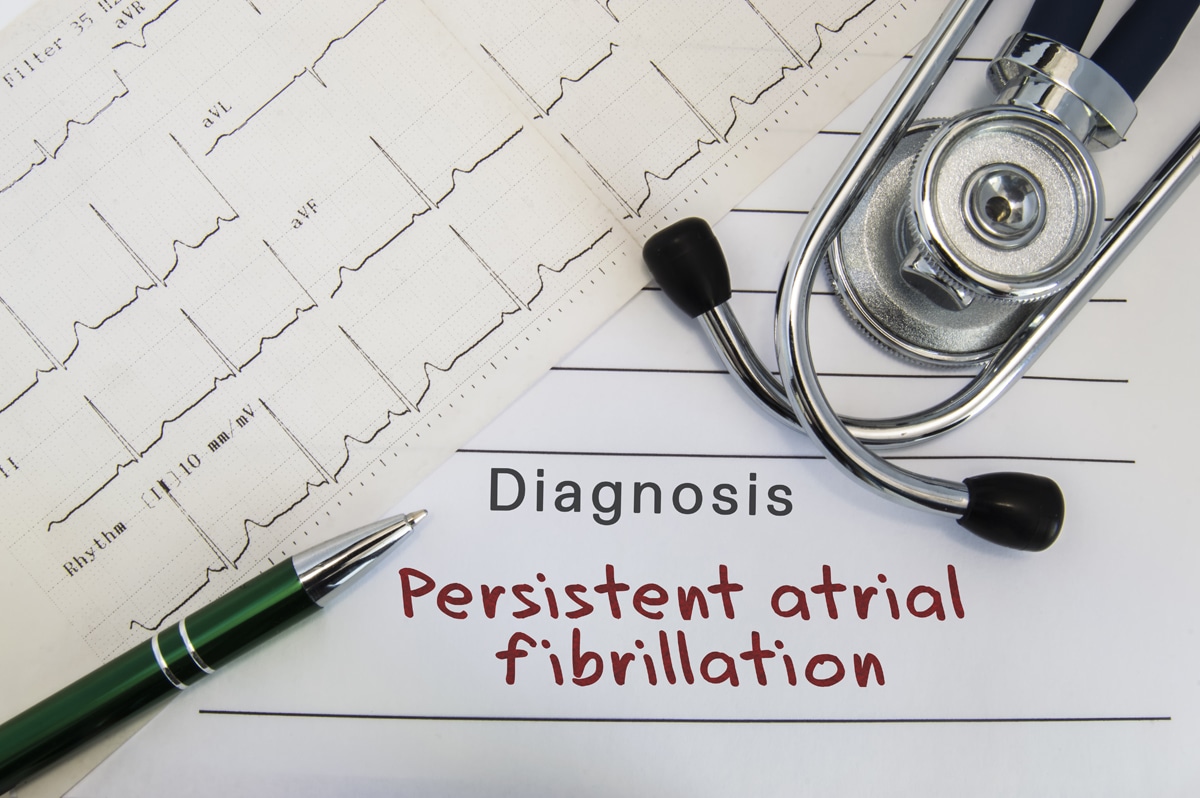About 2.7 million people in the U.S. – the same amount of people in the entire city of Chicago – are affected by atrial fibrillation (AFib) – a heart rhythm disorder that increases the risk of stroke five-fold, and causes other life-threatening conditions. Professionals with the Arrhythmia Center of La Porte Hospital are taking advantage of Atrial Fibrillation Awareness Month in September to remind the community to look for warning signs and stay current on their annual exams.
“Due to the rising incidents of atrial fibrillation in the U.S. as a whole, we do consider this a serious issue. There can be symptoms and warning signs of AFib, but many people with AFib feel no symptoms at all. This is why it is so important to have an annual exam with your primary care provider and to see a cardiologist if you are experiencing heart issues,” said Chris Atherton, RN, director of CV Services including the Arrhythmia Center at La Porte Hospital.
According to the Heart Rhythm Society, AFib is a malfunction of the heart’s electrical system (whereas clogged arteries are an issue with the “plumbing” aspect of the heart). The heart’s electrical system provides signals to the chambers of the heart, indicating when they should contract (squeeze) or relax. AFib is caused by chaotic electrical signals, which make the upper chambers of the heart (the atria) quiver inste4ad of fully contracting. For someone with AFib, the atria may be as often as 300 times a minute – about for times faster than normal. When this happens, blood can pool in the atria, which can allow for clots to form. If a clot dislodges from the atria and travels throughout the body, it can cause a stroke.
Symptoms of AFib include:
- Feeling overly tired or having little to no energy
- A faster-than-normal or irregular pulse (switching between fast and slow)
- Shortness of breath
- The feeling as if your heart is racing, pounding or fluttering (palpitations).
- Trouble with every-day exercises or tasks
- Pain, pressure, tightness, or discomfort in your chest (this could also be a heart attack. Call 911)
- Dizziness, light headedness, fainting
- Increased urination
“Even people who maintain a healthy lifestyle or seem otherwise healthy can develop AFib. The most common risk factors include being over age 60, having high blood pressure, or having other heart conditions like congestive heart failure, heart valve disease, or a prior open heart surgery,” Atherton said.
Additional risk factors, according to the Heart Rhythm Society, include an untreated atrial flutter (another type of abnormal heart rhythm), sleep apnea, thyroid disease, diabetes, chronic lung disease, excessive alcohol or stimulant use, and serious illnesses or infections.
La Porte Hospital has a comprehensive Arrhythmia Center for the diagnosis, treatment, and on-going management of AFib. Electrophysiologists Mark Dixon, D.O., Raghuram Dasari MD and Scott Kaufman, D.O., with Northwest Indiana Cardiovascular Physicians provide care at the Center, with staff highly-trained in the latest technology for treating and managing the disease.
AFib is diagnosed with an electro-cardiogram (EKG), or with mobile devices that patients wear to monitor their heart rhythms over a period of time. The physicians in the Arrhythmia Center work alongside the patient’s cardiologist and primary care doctor to manage AFib with medications, or procedures that are done in the electrophysiology lab. The procedures include ablation, which applies energy to render a small section of problem-causing tissue inactive, and implanted pacemaker devices.
In June, Kaufman implanted the area’s first leadless pacemaker – about the size of a large vitamin – in a patient from Michigan City, with excellent outcomes. The device automatically transmits heart rhythm data to Arrhythmia Center staff who monitor it.
If you experience any symptoms of AFib or are concerned you may be one of the 2.7 million U.S. adults with the condition, see your primary care doctor. Additional tests and a cardiac evaluation may be necessary. Need a doctor? Visit laportephysiciannework.com.


